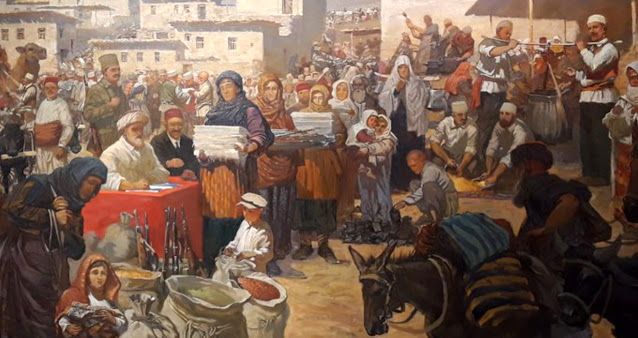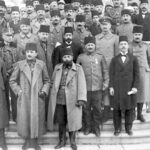It was an important factor that directly affected the economic structure of settlements such as villages and towns that were obliged to pay taxes in the Ottoman Empire. This tax obligation both strengthened the central authority and contributed to the functioning of local governments.
Villages were generally known for their agriculture-based economies, while towns were areas where trade was intense. These differences also affected the way the tax system was implemented. While taxes were levied on income from agricultural production in villages, taxation was levied on earnings from trade and crafts in towns.
Types of Taxes in the Ottoman Empire
Tax types in the Ottoman Empire were based on taxes collected from different segments of society. These taxes are grouped into two main groups as Sharia taxes and customary taxes. Sharia taxes were taxes based on religious rules and levied according to Islamic law. For example, zakat and öşür fell into this category. Customary taxes, on the other hand, were taxes that were determined according to the needs of the state and collected at the local level by its practitioners. Types of these taxes include tribute, jizya, and various other obligations.
Tax System in the Ottoman Empire

The Ottoman tax system was accepted as the basis of the financial structure of the state. This system formed a structure that fed both the central government and local governments. Tax collectors, called mütesellim, were generally assigned to collect taxes. These people worked in cooperation with village and town administrators to collect taxes. The tax system was of great importance not only in terms of the revenues collected, but also in terms of how these revenues were spent and contributed to the welfare of the people.
Taxes in the Ottoman Empire
Taxes collected in the Ottoman Empire were divided into various categories. Tribute stands out as one of the most well-known elements of the tax system.
Tribute was a type of tax applied especially in conquered lands and was considered an obligation to the local people.
Jizya, on the other hand, was a tax levied on non-Muslims living under the Islamic state. Non-Muslim communities continued to live under the protection of the state by paying jizya. This tax also functioned as a mechanism that kept the social structure in balance.
Tribute Tax in the Ottoman Empire
The tribute tax was an important type of tax in the Ottoman Empire. This tax was collected from non-Muslim peoples, especially in the conquered lands. Tribute could also be considered as a kind of permit fee for indigenous people to carry out agricultural activities on their lands. The tribute tax was collected by local governments and was usually calculated and collected at a certain rate. This practice supported the economic structure of the state.
Jizye Tax in the Ottoman Empire
The jizya tax was a tax that the Ottoman Empire levied on non-Muslims within the framework of Islamic law. Jizya was demanded especially from Christian and Jewish communities. This tax, which non-Muslims paid to live under the protection of the state, did not oblige them to do military service. The jizya tax is of critical importance for understanding the dynamic structure of Ottoman society.
Resources
1. https://dergipark.org.tr/tr/pub/niguiibfd/issue/19757/211521










